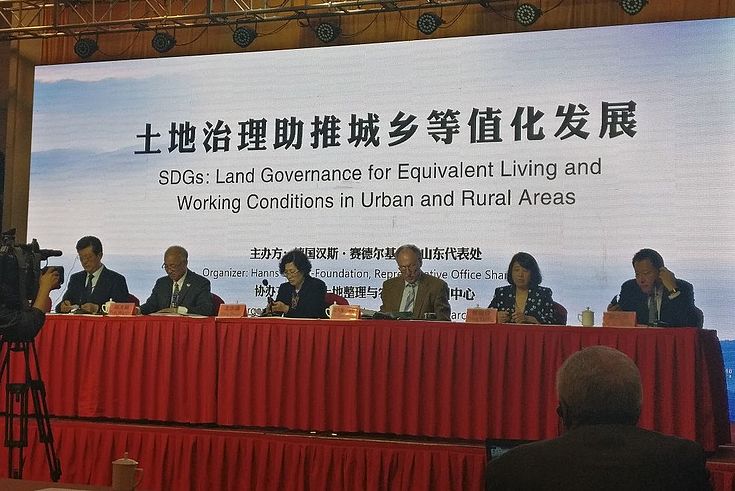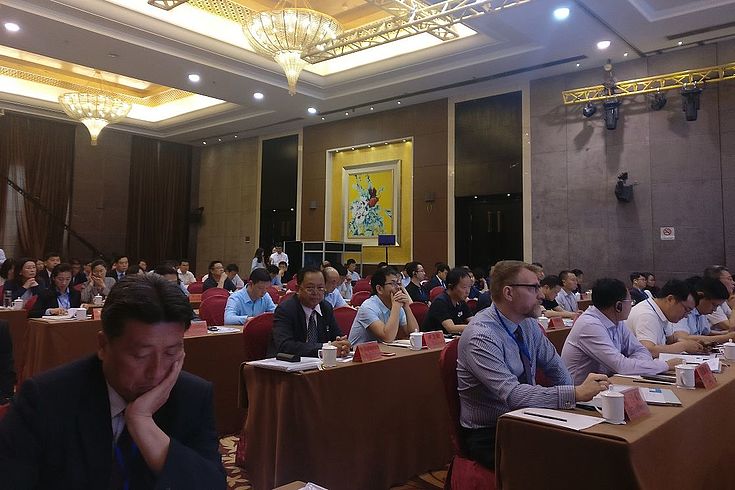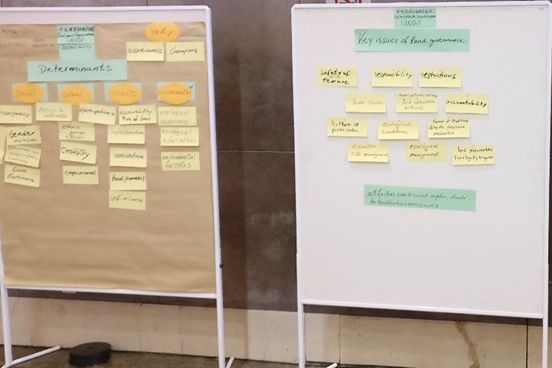Conference
Sustainable Development Goals

Opening Session
This year, more than forty international experts coming from 10 countries of Northeast and Southeast Asia, including representatives from the Republic of Korea (South Korea) and the Democratic People’s Republic of Korea, as well as 70 Chinese experts from research institutes, academia and local administration met in Qinzhou to discuss Sustainable Development Goals, in particular how to close the rural-urban divide.

International Cooperation
Background Information
Hanns-Seidel-Foundation works worldwide in a variety of social, economic and ecological development projects. However, China has since 1979 been one of the focal countries for our development efforts. For 30 years, our colleagues in Shandong province, partner province of Bavaria state in Germany, worked on rural development, with projects ranging from a model village and land consolidation project to the development of master plans for rural development. Given the huge development pressures in China, including the gap of rural and urban areas, ecological pressure and population density, the re-vitalization of rural areas faces huge obstacles. The conference commemorated 30 years of collaboration on land consolidation, land governance and sustainable development between HSF and Shandong province. While it all started with cooperation in one model village, today plans for thousands of villages are drawn up to improve the fate of rural areas of China. In particular, the model village Nanzhanglou development project for the first time employed a participatory approach to rural development.

Presentation of the Outcomes of the Workshops
The Conference
The first day’s keynote speeches, academic sessions and panel discussions looked into sustainable urban and rural development and the role of local governments and the quest for equivalent living conditions in rural and urban areas.
The second day of the Conference started with a review of day one by conference chair Prof. Dr. Holger Magel. Afterwards, the first session looked into spatial planning for rural development in Germany and China. The second session looked into the role of development organizations like Hanns-Seidel-Foundation or GIZ from Germany for land governance and the implementation of SDG at the local level. The afternoon session was organized as a workshop, where participants could discuss the main issues which arose from presentation in the preceding sessions under the moderation of Prof. Dr. Holger Magel. In working groups, the implementation of SDG, accountability of land administration, PPP approaches, and other issues were discussed.
Dr. Michael Klaus, head of HSF Qinzhou, concluded the conference with the appeal to use the strengthened and new networks formed at the conference to work towards better planning locally, regionally, nationally and worldwide.
